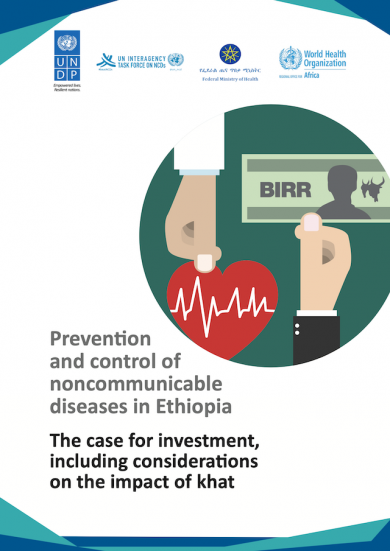
Prevention and control of noncommunicable diseases in Ethiopia: The case for investment, including considerations on the impact of khat
In 2016, the risk of premature mortality1 from noncommunicable diseases (NCDs) in Ethiopia was 18.3%. The economic costs of NCDs are significant and are due principally to their impact on the non-health sector (reduced workforce and productivity). In this study, it is estimated that NCDs cost Ethiopia at least 31.3 billion birr (US$ 1.1 billion) per year, equivalent to 1.8% of the gross domestic product (GDP). Less than 15% of the costs are for health care.
The main behavioural risk factors for NCDs are tobacco use, harmful use of alcohol, unhealthy diet and physical inactivity. The World Health Assembly and United Nations General Assembly have endorsed a set of evidence-based, cost-effective and feasible policies2 that when implemented are proven to reduce levels of NCDs.